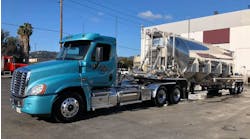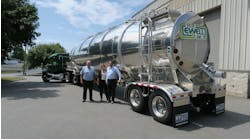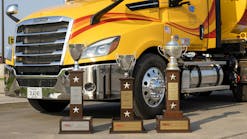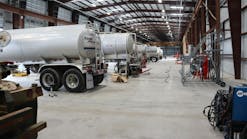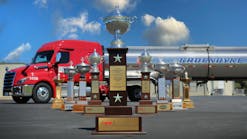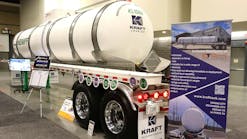Wetlines ban passes transportation committee, moves to full House
Members of the House of Representatives Transportation and Infrastructure Committee approved a bill November 19 to ban wetlines (exposed retained product piping) on cargo tank trailers used to transport Class 3 flammable liquids. The bill (HR 4016) still must be approved by the full House and must be passed by the Senate.
Wetlines containing Class 3 flammables would not be allowed on new cargo tanks constructed two years after the legislation becomes law. In addition, tank trailer owners would have to begin a wetlines retrofit in 2025. In the original bill, the wetlines retrofit was set to start in 2020.
“While NTTC (National Tank Truck Carriers Inc) continues to believe this legislation is not necessary, we are pleased that the retrofit has been put off another five years,” says John Conley, NTTC president. “This will reduce the operational, economic, and, most importantly, the negative safety impact on the tank truck industry that previous drafts would have caused.”
HR 4016 does not mandate any specific wetlines purging technology or product. It would give more flexibility to cargo tank manufacturers, component suppliers, tank truck operators to develop various methods or systems for compliance. The legislation also calls for a panel to study methods of safer welding on petroleum cargo tanks and prohibits roadside inspectors from opening cargo tank valves to check for compliance.
During the committee debate, Rep Tom Petri (R-WI) sought a clear exemption in the bill for DOT407 tank trailers, but his proposed amendment was rebuffed by Democrats on the committee. He was told that this is not an issue because the Transportation Secretary will have the authority to determine which cargo tanks would be covered in the wetlines regulation written by the Department of Transportation.
The part of the bill referred to by Democrats is entitled “Limitation on Applicability.” It states in section (2) Alternative means of compliance—Subsection (a) that the legislation “does not apply to a cargo tank motor vehicle that utilizes an alternative means to eliminate the safety hazard presented by the transportation of a Class 3 flammable material in the external product piping of such vehicle, if the Secretary (of Transportation) determines, following notice and an opportunity for public comment, that such an alternative means provides a level of safety at least equal to the level of safety that would be provided by a prohibition of the transportation of a Class 3 flammable liquid in the external piping of such vehicle.”
Clearly, there is no specific exclusion of MC307 or DOT407 cargo tank trailers from HR 4016, and there is no guarantee that the transportation secretary will exempt these tank trailers. These tank trailers are used to transport a wide range of Class 3 flammable liquids, including acetone, alcoholic beverages, amines, benzene, butyl nitrites, isocyantes, methanol, paints and coatings, pesticides, and vinyl acetate.
